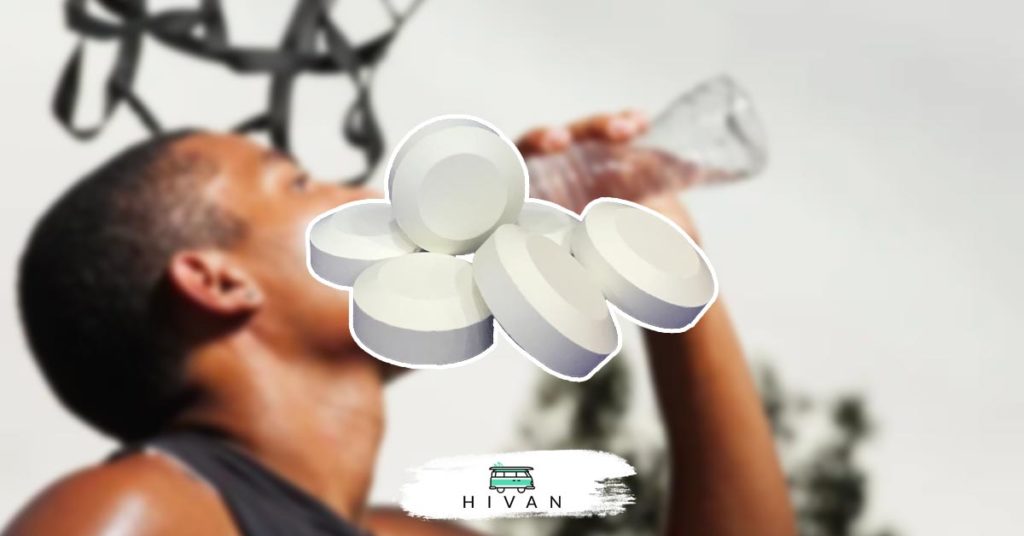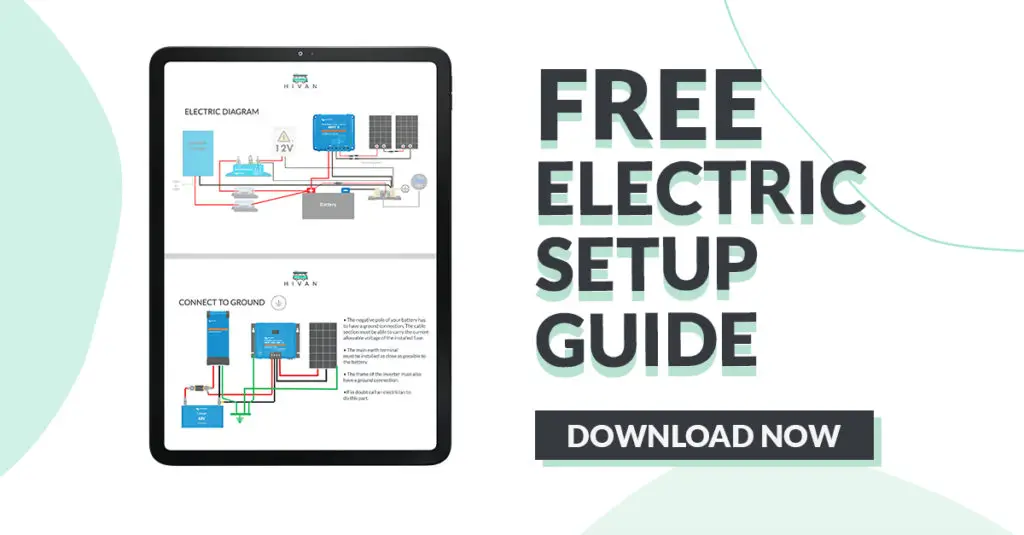Hi-van is supported by its audience. When you purchase using our links, we may earn an affiliate commission (no added cost to you). Learn more
When it comes to the “essential things” in life, clean, safe drinking water is right up there with food, shelter, and clothing. However, while water sources may be within reach to many communities, the water may not always be safe for consumption. Chlorine tablets are among the ways water is treated to make it potable.

Chlorine tablets are safe for drinking water, especially for short-term use and during emergencies, and are used to avoid outbreaks. However, long-term exposure and inappropriate doses may lead to the accumulation of harmful byproducts. Thus, these must be used properly to prevent health issues.
In this article, I will discuss chlorine tablets, their advantages and disadvantages, their usage in drinking water, and related health hazards.
What Are Chlorine Tablets?
Chlorine tablets are a type of point-of-use technology. This means that they were specifically designed to treat water before it is drunk or consumed by people. It is often used in developing countries or during emergencies, for example, typhoons, when access to safe water is limited.
Chlorination is a frequently-used type of water treatment wherein chlorine is added as a disinfectant. It may be done through liquid chlorine, chlorine tablets, or other means. There are specific safe levels for chlorine in water, which will be discussed later in this article.
Chlorine tablets as a form of water treatment are highly encouraged to avoid disease outbreaks, such as diarrhea or typhoid. Although these tablets are easy to use, accessible, and affordable, many households discontinue using them due to aversion to taste, confusion with dosages, and cultural myths.
Advantages of Using Chlorine Tablets
A primary advantage of using chlorine tablets is their effectiveness in eliminating bacteria and viruses. They are also easy to use because they do not take up too much time or effort. Plus, they are affordable and accessible, available in many countries.
Chlorine Is Effective in Killing Pathogens
Natural sources, such as pond water and even groundwater, may often be contaminated with different disease-causing agents. Thus, during times when water is scarce, people turn to these sources.
However, they must use disinfectants like chlorine tablets to make them potable. Chlorine is an effective treatment method, but such may be affected by factors like pH, exposure time, and other matter present in the water.
Chlorine Can Prevent Recontamination
There are chlorine residues that stay in the water after treatment, and these help in preventing recontamination. This is critical during times when water needs to be transported. It is also helpful for situations when there are many sources of contamination that cannot be eliminated right away.
Chlorine Tablets Are Easy To Use, Affordable, and Accessible
Using chlorine tablets needs only minimal effort and time. You only need to add them to an appropriate amount of water and leave for a period of time, around 30 minutes to an hour. It is essential to follow the guidelines, like appropriate dose and contact time.
A single tablet can also disinfect a large amount of water, thus making them practical and affordable. Chlorine tablets are also available in many doses to address varying needs. They are available in many countries and during natural disasters through emergency response teams.
Disadvantages of Using Chlorine Tablets
While chlorine tablets are great for short-term use, such as emergencies, many households do not use them for a few different reasons.
Two of the main disadvantages to using chlorine tablets are the accompanying bad taste or odor when using them. Another downside with these tablets is that long-term use may lead to the accumulation of byproducts. Long-term exposure to these byproducts can be harmful to your health.
Chlorine-Treated Water Can Have a Bad Taste or Odor
Many users of chlorine tablets report that, even at low levels, the water can have a bad taste or smell. This may be due to chlorine residue or byproducts of chlorine reactions. Unappealing taste and smell may cause users to think that it is unsafe to drink and thus discontinue usage of such tablets.
Health Issues Associated With Chlorine in Drinking Water
One of the most concerning byproducts formed by the usage of chlorine tablets is trihalomethane (THMs). Long-term exposure to these products is associated with cancer and other chronic health effects. However, these risks should not outweigh the benefits of chlorine tablets during emergencies.
There are safe levels of THMs specified in Europe (100 micrograms per liter) and the United States (80 micrograms per liter). These levels are generally not exceeded during short-term usage, except when water was already highly contaminated, the appropriate contact time was exceeded, or there was an overdose of chlorine.
Chlorine Tablets Can Be Ingested Accidentally
Chlorine tablets can look like regular, safe-to-ingest pills. Thus, it is important to keep them in their proper containers to avoid accidental ingestion. They should also be kept out of children’s reach, as they may inhale or ingest them.
Other Health Hazards Associated With Chlorine Tablets
Chlorine vapors are known to be harmful and are used to knock people out. Thus, everyone, especially kids, should avoid sniffing these tablets. There have been reported cases of children suffering severe respiratory distress because they accidentally inhaled or sniffed chlorine tablets.
Chlorine is also harmful to many pets, like fish and reptiles. As such, chlorinated water must not be used for these pets. It must be allowed to sit out to remove the chlorine residues before using them to fill aquariums or be consumed by pets.
What Are the Safe Levels of Chlorine in Water?
The Centers for Disease Control and Prevention (CDC) state that chlorine levels should not exceed four milligrams per liter or four parts per million. Using chlorine tablets for a short amount of time does not often exceed these levels. Thus, it is safe to use them at appropriate dosages.
Final Thoughts
Chlorine tablets are safe for drinking water and should be considered as a disinfectant. There are many diseases that you may get from consuming unsafe water, making disinfection critical. These tablets are known to be effective against disease-causing agents.
However, precautions should still be taken when using these tablets, like knowing the proper dosage and contact period. They should also be stored properly to avoid accidental ingestion or inhalation. You may also stick to using them on a short-term basis to prevent the accumulation of harmful byproducts.
Find this content useful 🙂 ?
Subscribe to our Newsletter and get a free Solar Electric Diagram + shopping list.

